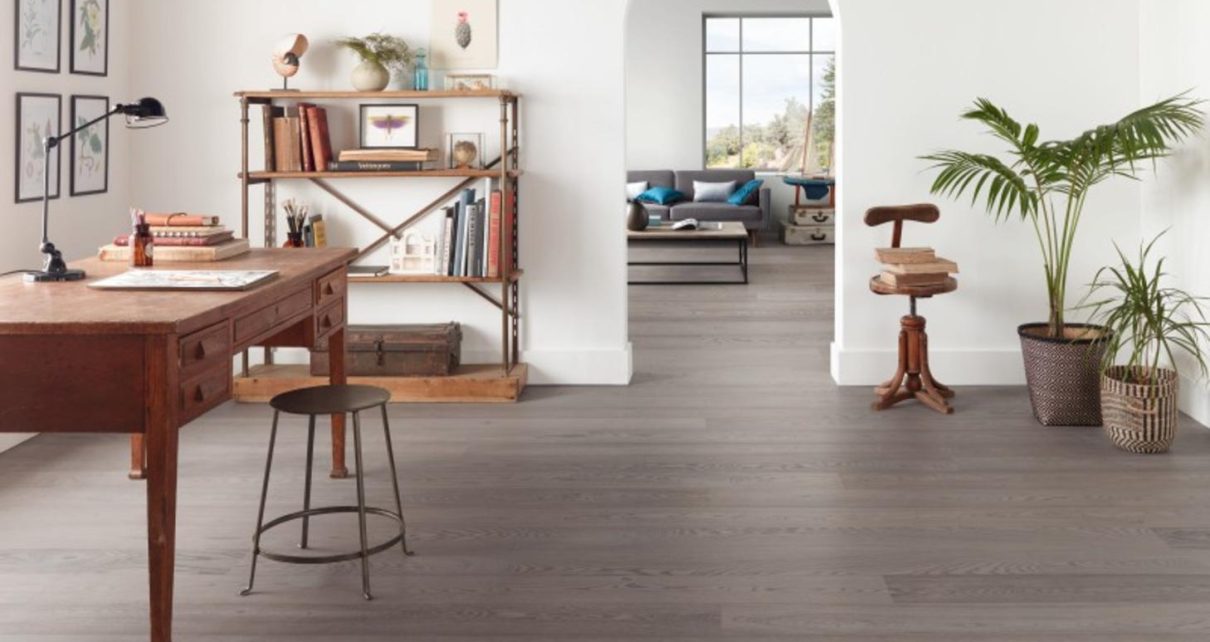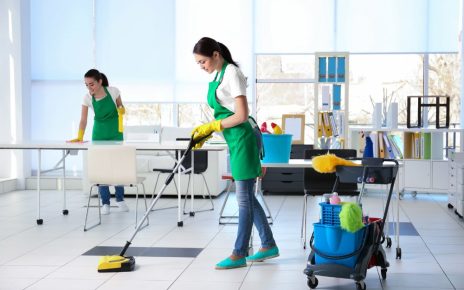The kind of flooring in a place of business performs a quintessential function in general health, comfort, and cleanliness. From minimizing allergens to supporting ergonomic action and stopping moisture buildup, the suited flooring contributes to a safer and accelerated productive work environment. Choosing low-emission, easy-to-maintain materials can avoid negative toxins and create a cleaner indoor atmosphere. Ultimately, floor options choose to information durability, sustainability, and Effective cleaning methods.
1. Luxury Vinyl Tile (LVT)
LVT is one of the most famous business ground picks due to its sturdiness and ease of maintenance. It provides the appearance of wood or stone without the related upkeep.
Benefits:
- Water-resistant
- Comfortable underfoot
- Easy to sanitize
Opt for phthalate-free and low-VOC choices to enhance indoor air quality.
2. Natural Linoleum
Made from linseed oil, cork dust, and wood flour, natural linoleum is biodegradable and free from dangerous chemicals.
Health advantages:
- Antimicrobial surface
- Naturally repels dust and allergens
- Durable and sustainable
Perfect for eco-conscious offices aiming to reduce environmental impact.
3. Cork Flooring
Cork gives a cushioned surface perfect for standing desks and workspaces requiring sound insulation. It’s additionally a renewable material harvested barring harming trees.
Why cork works:
- Soft and ergonomic
- Hypoallergenic
- Antimicrobial properties
Requires sealing to guard towards moisture and wear.
4. Bamboo Flooring
Bamboo is a fast-growing, eco-friendly cloth with a hardwood-like appearance. It is a stylish, renewable option that works nicely in modern office designs.
Features:
Resistant to moisture (when appropriate sealed)
Low in allergens
Long-lasting with suited care
Choose low-VOC bamboo adhesives to maintain healthy air.
5. Carpet Tiles with Low VOCs
Carpet tiles are a flexible answer offering noise reduction and underfoot comfort. Modern variations now come with low-VOC adhesives and antimicrobial treatments.
Best practices:
Choose recyclable tiles
Select stain-resistant, low-pile styles
Replace individual tiles rather of entire sections
Ensure everyday vacuuming with HEPA filters for ultimate air quality.
6. Rubber Flooring
Rubber floor is slip-resistant, tremendously durable, and comfortable. It’s best for high-traffic areas like spoil rooms or entryways.
Rubber floor benefits:
Sound-absorbing
Water-resistant
Naturally antimicrobial
Opt for recycled rubber to assist green building initiatives.
7. Ceramic or Porcelain Tile
For areas like restrooms or kitchens, ceramic or porcelain tile is hygienic and long-lasting. These tough surfaces are available to mop and disinfect.
Advantages:
- Impervious to moisture
- Resists mould and bacteria
- Doesn’t maintain allergens
Use textured tiles in high-moisture zones to decrease slips.
Choosing larger wholesome ground for the location of work doesn’t genuinely beautify aesthetics—it helps better respiratory health, comfort, and long-term well-being. Prioritizing sustainable, low-emission elements and non-toxic finishes contributes to a safer indoor environment. Regular protection and hygiene practices entire the equation for wellness-focused design, anchored through Effective cleaning methods.





